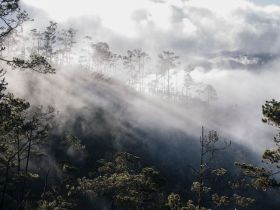Brazilian state proposes own REDD+ credits to tourists
Quantum Commodity Intelligence – The Western Brazilian state of Acre has asked tourists visiting the state to offset their carbon dioxide (CO2) emissions using carbon credits from rainforest protection within its borders, according to an official statement published this week.
Tourists as well as business visitors attending forums and conferences are encouraged to download the 'AC Net Zero' app on their mobile phone, and buy carbon credits.
The app can both be used to measure emissions from air and land transport, and to find greener alternatives.
"This offsetting can be done with the state's own stock," Victor Hugo Rondon, a manager within the the state-controlled Environmental Services Development Company of Acre (CDSA), which owns Acre's historic carbon credits, said.
"And the main thing: of all these resources that will come in from this sale, the majority will be destined for traditional communities, for indigenous peoples, for actions that actually make a change in the climate," he also said.
It is unclear at what price the credits will be sold, but the state previously indicated it wanted $5.60 a tonne of CO2 equivalent.
CDSA has over 100 million Acre Carbon Standard (ACS) credits from 2005 to 2015 vintages registered under its name in the Markit registry, owned by S&P Global.
The Acre government has given a mandate to CDSA to find buyers for the stock, but progress has been slow until now.
In parallel, Acre is working on a jurisdictional REDD+ programme under the Architecture for REDD+ Transactions (ART) standard for future vintages.
At COP28 last December, it announced a non-binding term sheet to supply up to 10 million forest carbon credits to the Leaf Coalition, a group of large corporates based in Europe and North America.
The state of Acre belonged to Bolivia until 1903, when it integrated Brazil following the Treaty of Petropólis.

